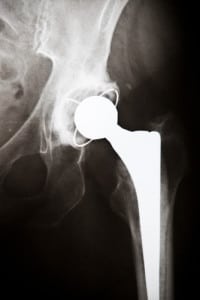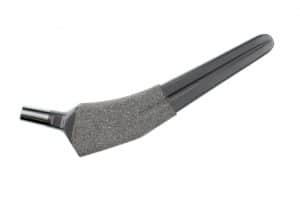
FDA Says Hip Implants Are Dangerous and Should Be Used with Caution
All-metal hip implants have been the subject of thousands of consumer lawsuits in the past few years. Patients who have had the devices implanted complain of several complications after surgery, including metallosis, infection, and a high failure rate.
The FDA and all-metal hip implant manufacturers have also received a huge number of complaints in the past few years. Johnson & Johnson’s subsidiary, DePuy, has been the focus of many of these lawsuits and complaints – so much so that in 2010, they recalled 93,000 all-metal hip implants because the failure rate was 12%.
All-metal hip implant devices were hugely popular a few years ago – between total hip replacement surgeries, and hip resurfacing surgeries, all-metal hip implants were used for one in three hip surgeries.
Traditional hip replacement devices are made from ceramics, or a combination of plastic and metal, typically wear out in 15 years. All-metal hip implants, however, typically fail within 5 years of surgery.
Johnson & Johnson alone faces more than 10,000 lawsuits because of the defective all-metal hip implants.
After years of outcry from the public, government regulators are finally tightening up regulations for these dangerous devices.
The FDA Steps In to Regulate All-Metal Hip Implants

According to a statement on the FDA’s website, however, all-metal hip implant manufacturers will have to file applications at the strictest level of government review, if the manufacturer wants to release a new all-metal hip implant device.
Manufacturers will also have to prove the devices are safe and effective before they can continue to sell existing ones. The FDA currently requires stricter clinical trials for all-metal hip resurfacing devices.
Unfortunately, it will take about a year, according to agency officials, for the rules to be finalized. The new rules will give manufacturers 90 days to submit safety testing data on existing products. However, the length of time will give lobbyists the ability to oppose or modify the legislation.
Part of the 510(k) problem stems from a 1976 law that classified some medical devices into high-risk and moderate-risk categories. Hip implants were never classified, and remained in limbo until last year, when a new law was finally passed. The Food and Drug Administration Safety and Innovation Act of 2012 allowed for a more streamlined way of classifying older devices. The FDA no longer needs to seek an economic review of a decision’s impact, which can take many years, in the case of some manufacturers.
In the meantime, lawsuits in the MDLs against Johnson & Johnson will begin to go to trial.
For updated information on the regulations of all-metal hip implants, see the FDA’s website.
The Strom Law Firm Can Help with Personal Injury Cases from All-Metal Hip Implants
If you or a loved one have received an all-metal hip implant, and now suffer harmful side effects from the device, such as infection, tissue necrosis, metallosis, or device failure, you may be entitled to compensation. The attorneys at the Strom Law Firm can help with dangerous medical device personal injury cases, including cases against all-metal hip implant manufacturers. We offer free consultations to discuss the facts of your case, so do not hesitate to contact us. 803.252.4800.

